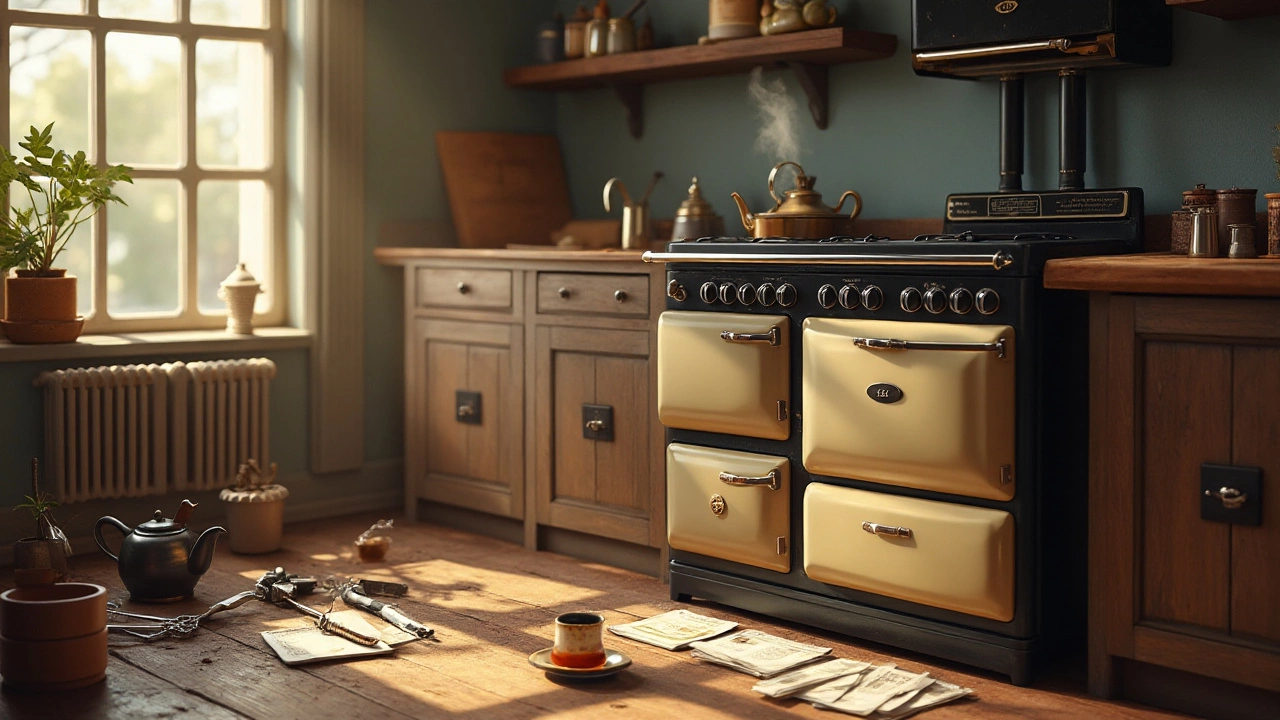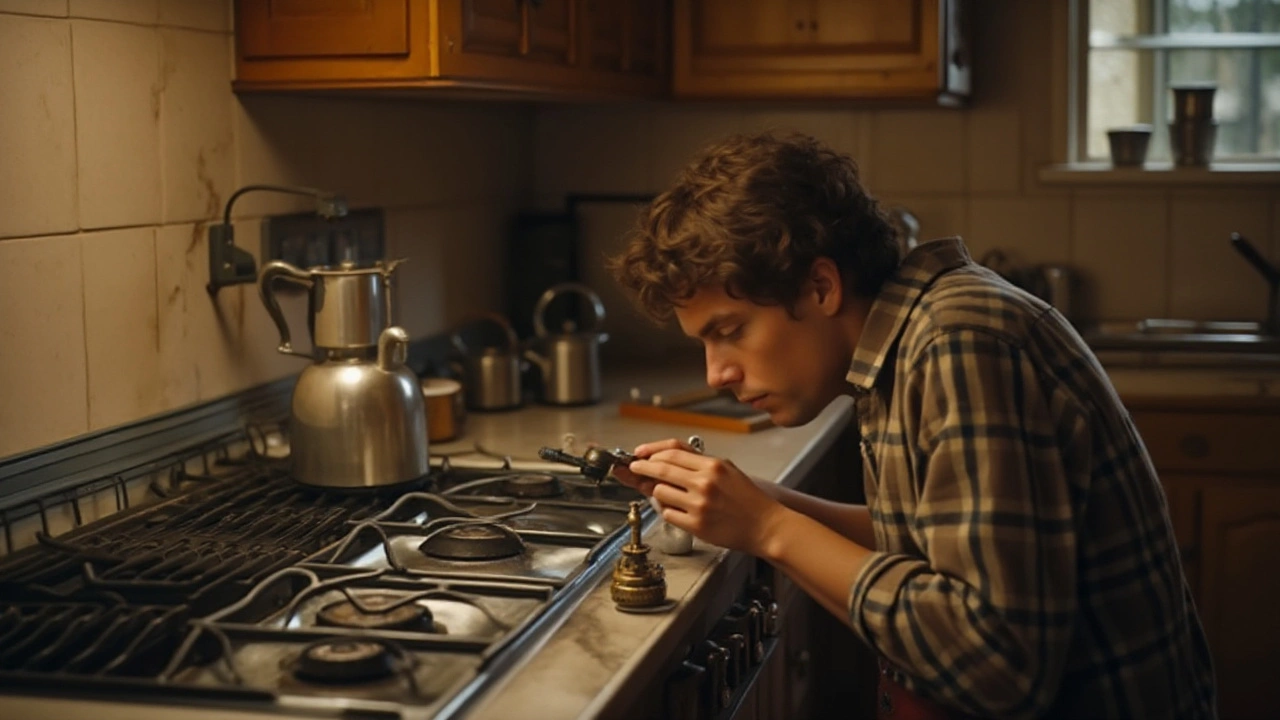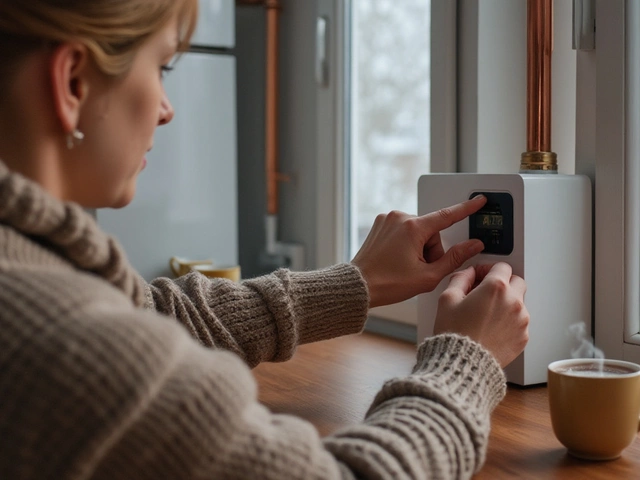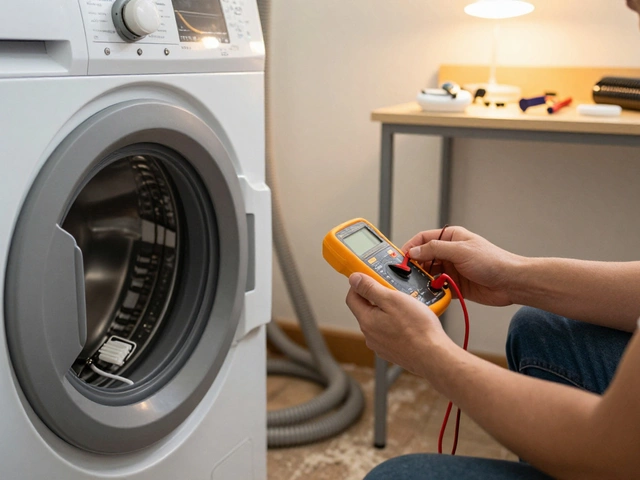Ever wonder why your hob stops heating or your extractor fan gets noisy? Most of the time it’s simple neglect, not a broken part. A few easy habits can stop small problems from becoming costly repairs.
Start with the obvious: clean the surfaces you use every day. Wipe down the electric hob after each use and keep the burners free of food debris. A quick visual check of the oven’s heating element can spot signs of wear before the oven stops heating altogether.
Extractor fans love a good cleaning. Remove the filter once a month, wash it with warm soapy water, and let it dry. If the fan sounds louder than usual, it could be a buildup of grease on the motor. A clean fan not only runs quieter but also pulls steam and odors out more efficiently.
Heat pumps, boilers, and water heaters aren’t kitchen gear, but they affect your hot water supply. Flushing the water heater every six months removes sediment that can make the heater work harder and eventually fail. The same goes for your fridge – a coil clean‑out once a year keeps it cooling properly.
When you notice an oven that won’t heat, check the element first. A broken element is cheap to replace and you can do it yourself with a screwdriver and a new part. If the element looks intact, the thermostat or wiring might be the culprit – that’s when calling a pro makes sense.
Cooking appliances also benefit from routine checks. For a dishwasher, run a short hot cycle with a cup of vinegar every few weeks to clear out limescale. For a washing machine, leave the door open after use to stop mold growth and run a cleaning cycle once a month.
And don’t forget the small stuff: tighten any loose screws on the oven door hinge, and make sure the plug sockets aren’t overheating. A loose connection can cause intermittent power loss, which can be frustrating and unsafe.
When you’re comfortable with DIY, swapping a broken hob element or an oven heating coil takes under an hour and saves a lot of money. Just unplug the appliance, note where each wire connects, and replace the part with the right size. If you’re unsure, a quick call to a local repair service can give you peace of mind and prevent a wrong part from causing more trouble.
Overall, the secret to low‑cost kitchen maintenance is staying ahead of the signs. A noisy fan, a slow‑to‑heat oven, or a fridge that’s warmer than usual are all early warnings. Treat them like a reminder to clean, inspect, and, when needed, replace a part before it breaks completely.
By making these checks part of your weekly routine, you’ll keep your kitchen running smoothly, avoid emergency repair calls, and extend the life of every appliance – from the extractor fan to the oven, hob, and beyond.

Curious if you can fix your dishwasher without calling a pro? This article breaks down the most common dishwasher problems and explains which repairs you can actually do yourself. We’ll cover how complicated these appliances really are, how to figure out what’s wrong, the tools you’ll need, and which jobs might leave you better off calling an expert. Get practical tips, interesting facts, and a clear picture of what you’re actually signing up for before grabbing that toolbox.

Struggling with an electric oven that isn't doing its job? This article guides you through common problems you might face with your electric oven, from strange noises to uneven cooking. You'll learn specific symptoms to watch for and practical ways to check what's wrong before calling a professional. Discover tips to keep your oven running smoothly and avoid kitchen headaches. No complicated jargon—just real advice that actually works.

Navigating the world of cooker repair can seem daunting, but armed with the right knowledge, it becomes manageable. This article explores common issues faced by cookers, signs that suggest whether repair is possible, and steps on how to approach fixing these vital kitchen appliances. By identifying whether a do-it-yourself fix is feasible or when to call in a professional, you can make informed decisions about your cooker. Learn about maintenance tips to prolong the life of your cooker and keep it working efficiently.

Gas cooktops are an essential part of the modern kitchen, but like all appliances, they can encounter problems over time. This article provides valuable tips and tricks on how to diagnose and repair common gas cooktop issues such as faulty igniters, uneven flames, and gas leaks. With useful insights and step-by-step guidance, even the least experienced DIY enthusiasts can potentially save money and extend the lifespan of their cooktops. If the repairs are too complex or safety is at risk, it is always advisable to seek professional assistance.

Maintaining a boiler goes beyond just an annual check-up. Regular maintenance ensures that your heating system runs efficiently, prolonging its lifespan and saving money on repairs. This article delves into necessary care tips, signs indicating a need for professional help, and actions homeowners can take to keep their boilers in top shape. Understanding the importance of each maintenance task can help prevent unexpected breakdowns, especially during colder months.

Annoyed by standing water at the bottom of your dishwasher? This article breaks down why your dishwasher isn't draining, what can cause it, and how to troubleshoot the most common issues. Learn about clogged filters, garbage disposal connections, and more. I'll also share some handy tips to help you prevent problems in the future. Whether you're a first-timer or have dealt with dishwasher headaches before, you’ll find practical advice here.

Curious about how much a new boiler might set you back? This article breaks down the costs involved, from purchasing the unit to installation fees. Understand the factors that influence pricing and learn practical tips to get the most value from your investment. Discover essential maintenance advice and the importance of proper sizing and efficiency ratings. Equip yourself with knowledge before making a decision about your home's heating system.

Learn how to fix common dryer problems yourself-no experience needed. Save money and avoid service calls with simple repairs like replacing belts, fuses, and cleaning vents.

Leaving an electric oven on overnight sounds harmless, but it could spell real trouble. Learn the risks, facts, and safer options for your late-night cooking needs.